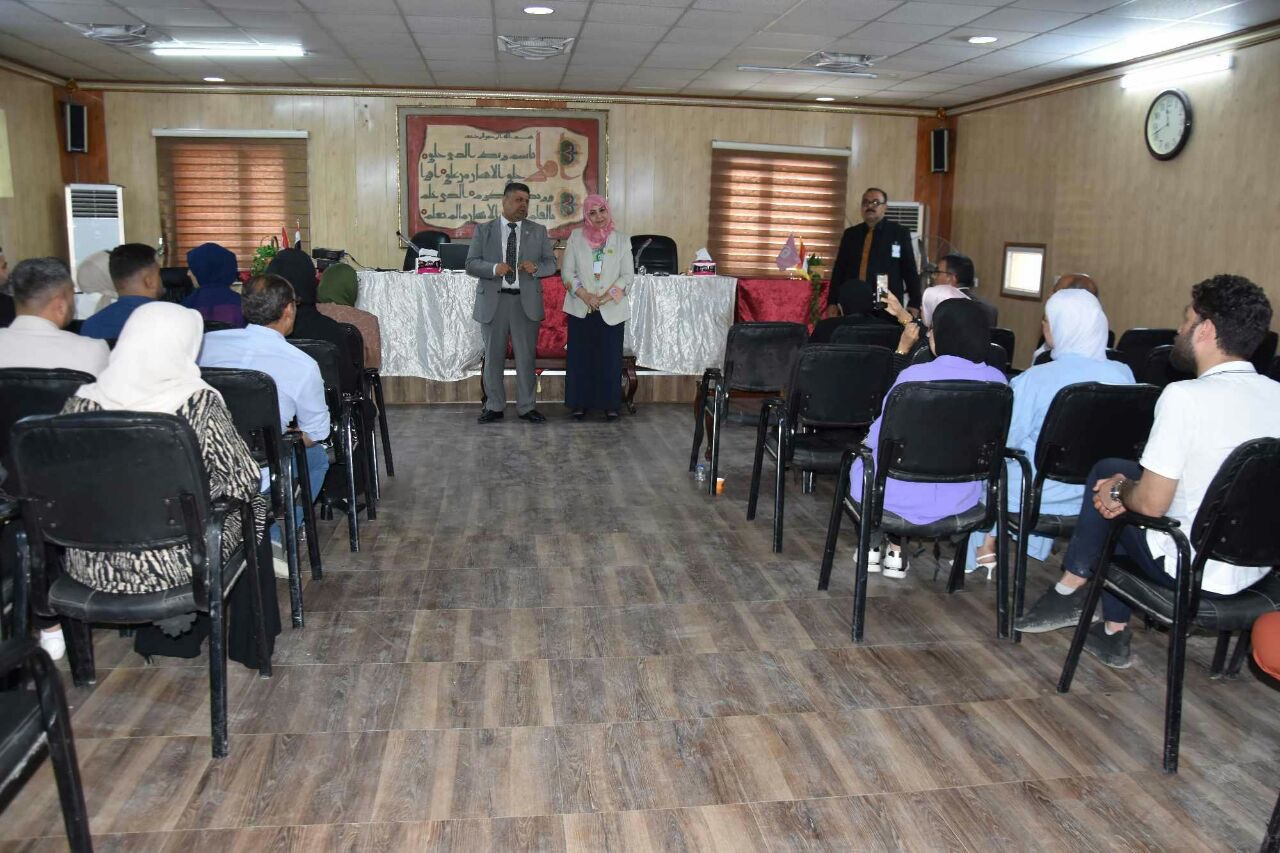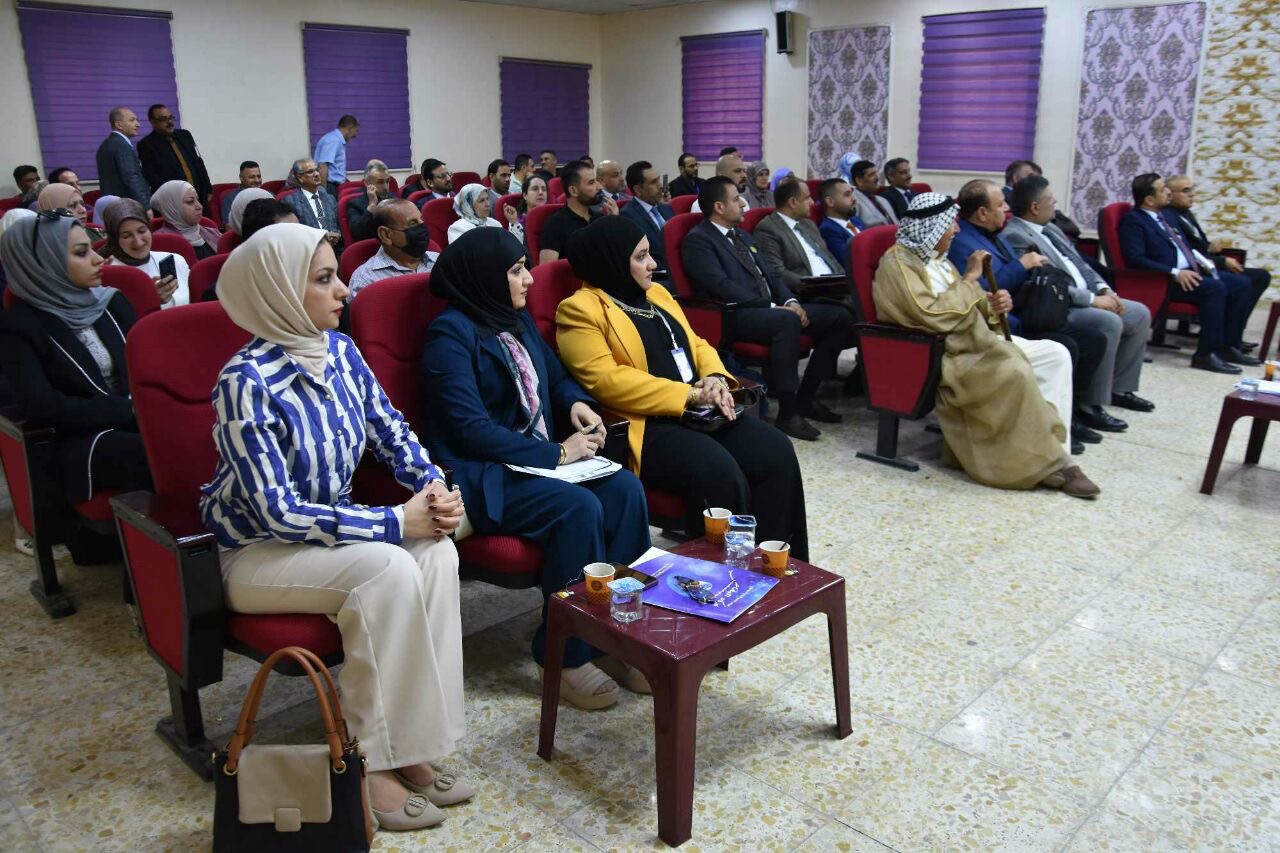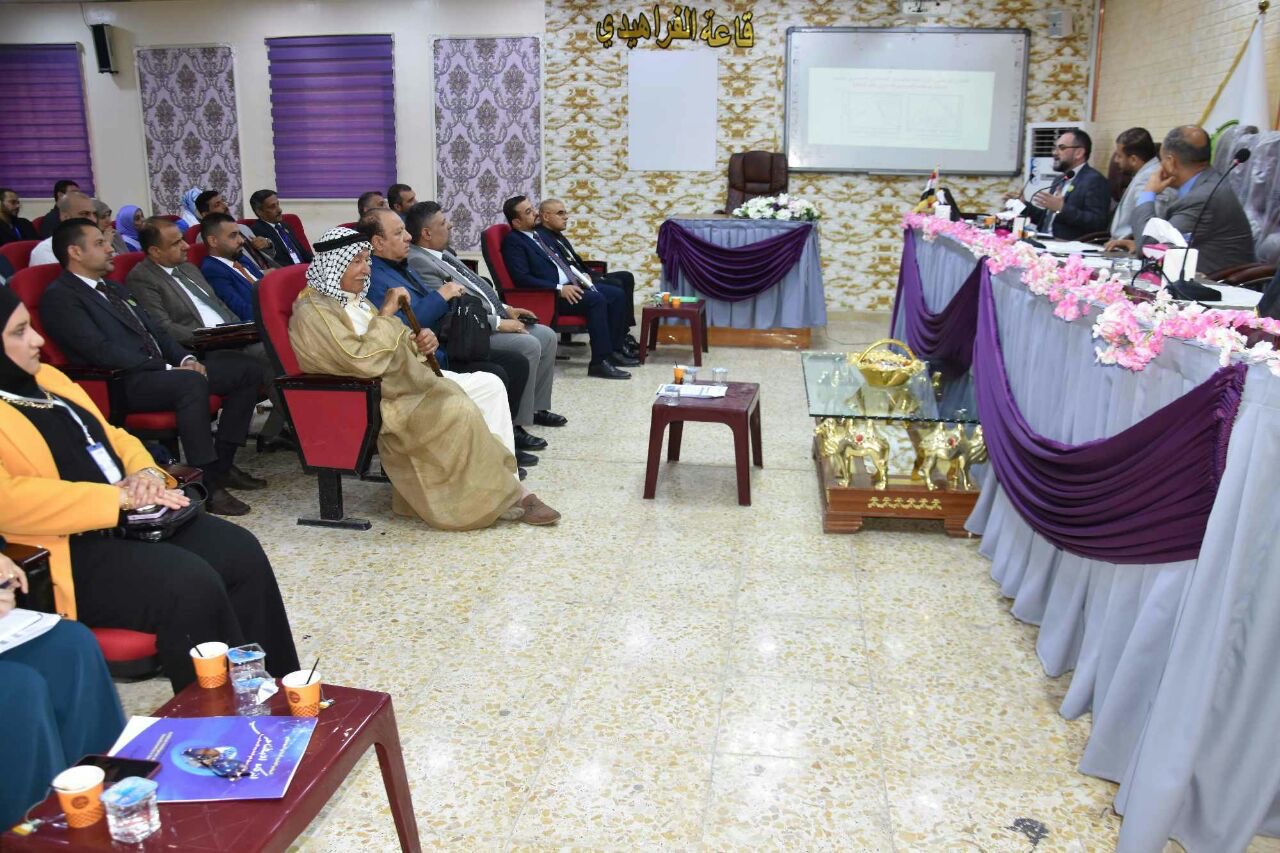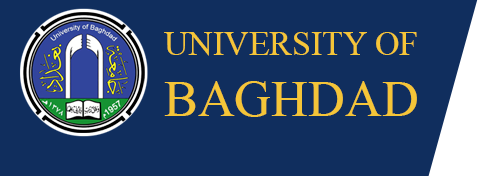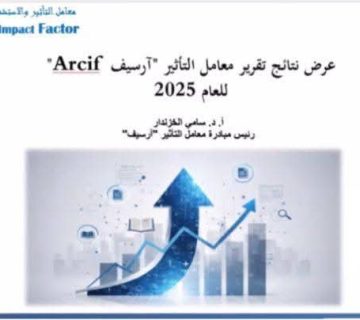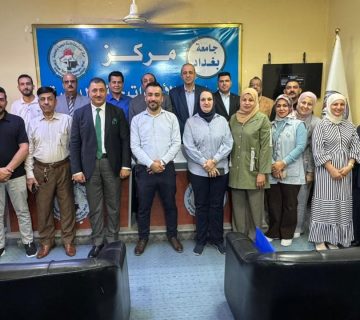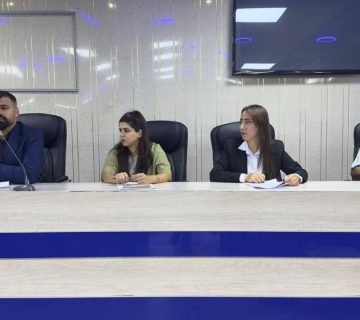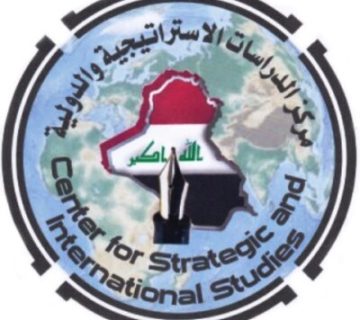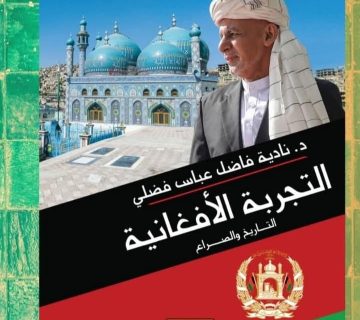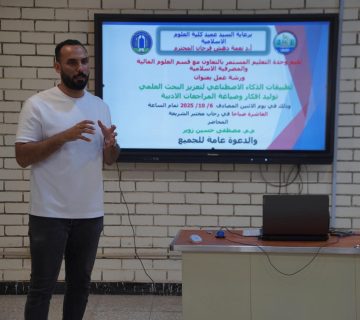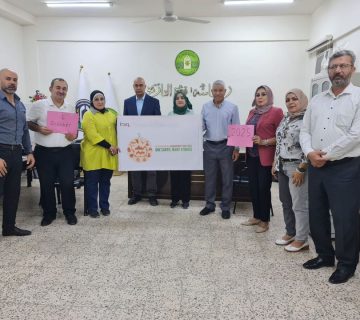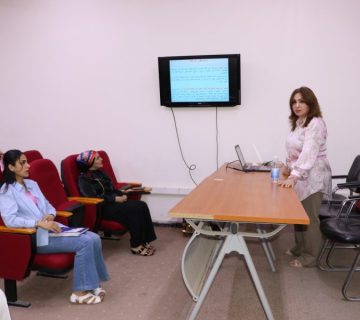The College of Arts at the University of Baghdad and the Iraqi Institute for Dialogue successfully concluded the proceedings of the international conference titled “Artificial Intelligence and the Potential for Transformation in the Humanities,” which spanned over two days. The event saw participation from numerous researchers representing over twenty countries, presenting a total of fifty-six papers across various disciplines including linguistics, literature, philosophy, social sciences, psychology, geography, information systems, history, archaeology, and translation.
The conference commenced its first day at the main hall of the University of Baghdad compound in Jadriyah, featuring addresses from the Minister of Higher Education and Scientific Research, Dr. Naim Al-Aboudi, the President of the University of Baghdad, Prof.Dr. Bahaa Ibraheem Ansaf, and the Dean of the College of Arts, Prof.Dr. Ali Abdul Amir Sajet. This was succeeded by a panel discussion comprising the advisor to the Prime Minister’s Office for Artificial Intelligence Affairs, Prof.Dr. Dhyia Al-Jumaili, the Deputy Minister of Higher Education for Scientific Affairs, Dr. Haider Abdul Dhahd, and Dr. Youssef Khalef Youssef, President of Al-Shaab Private University. They deliberated on the opportunities and challenges presented by artificial intelligence applications across diverse domains, followed by three specialized research sessions.
The second day of the conference, hosted in the College of Arts, featured four research sessions and one electronic session, encompassing presentations of the fifty-six papers accepted by the scientific committee. Subsequently, the conference president, the Dean of the College of Arts, convened a meeting to formulate recommendations with input from the scientific committee members and participating researchers, in collaboration with the conference’s advisory committee. These recommendations will be finalized and submitted to relevant stakeholders. Lastly, an awards ceremony was held to recognize and express gratitude to the contributing researchers, committee leaders, and members.

